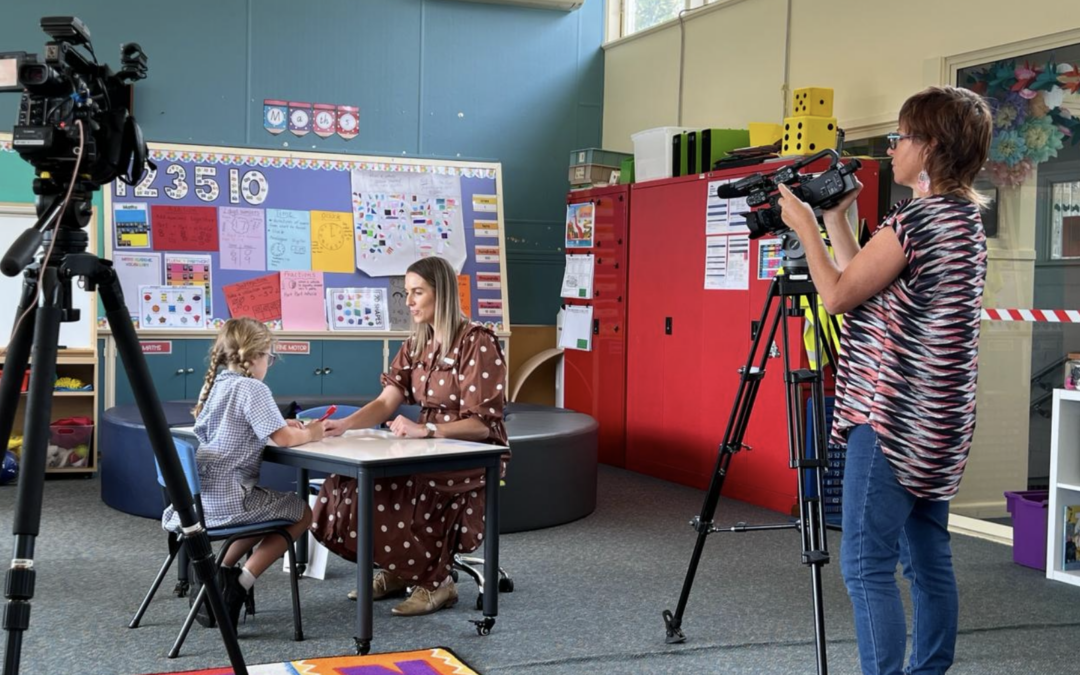John and Tita have spent the past five weeks in Australia, visiting schools and trainers, giving talks and attending a conference. These are some of the insights they’ve gained from their visit:
In schools, the role of the leadership team is key
We were lucky enough to visit several schools at various stages of their Sounds-Write implementation, including Stretton State College, Dutton Park and Springfield Central in Brisbane, Hamlyn Banks Primary School in Geelong, and St John’s Grammar in Adelaide. All these schools had a strong leadership team with the vision, knowledge and enthusiasm to manage change and ‘get reading right’. Regardless of where they are at in their journey, all these leaders understand that transforming the teaching and learning of reading and spelling is a complex, multi-layered undertaking. The schools we visited had a clear framework for:
- identifying the problem and imagining a better future;
- identifying the professional learning needs of staff and developing their knowledge and understanding and their practice, thus also affirming their professionalism;
- and, evaluating and reporting on the student learning achievements and the success of the implementation.
We will be working with these schools to produce some more case studies over the next few months.
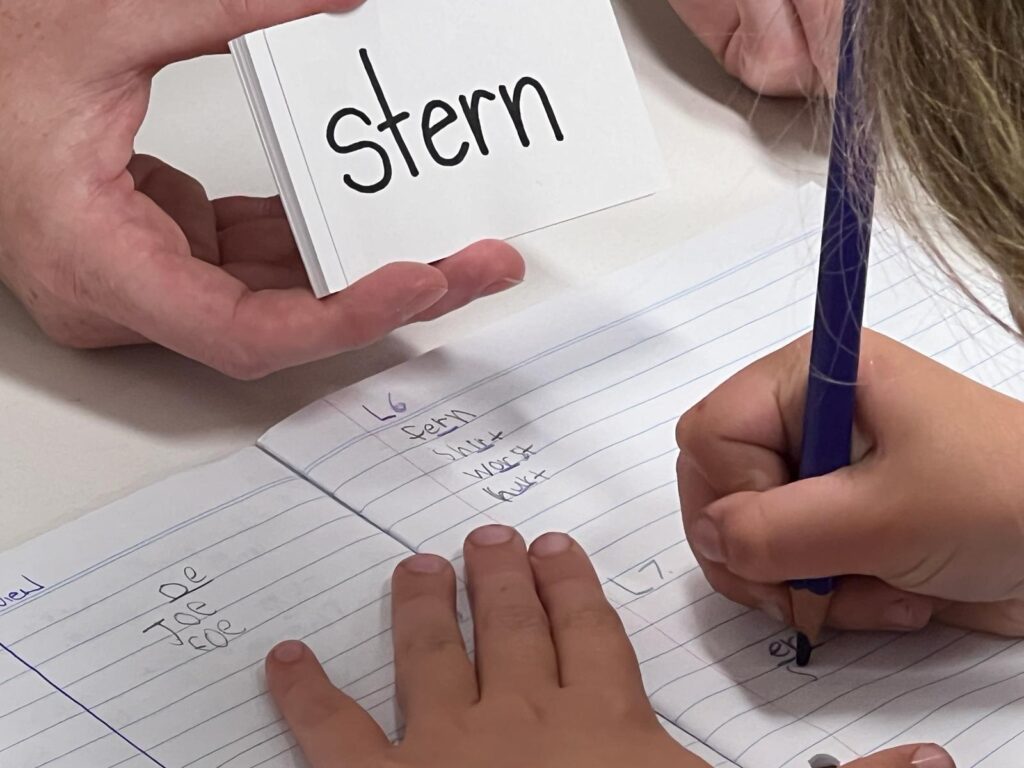
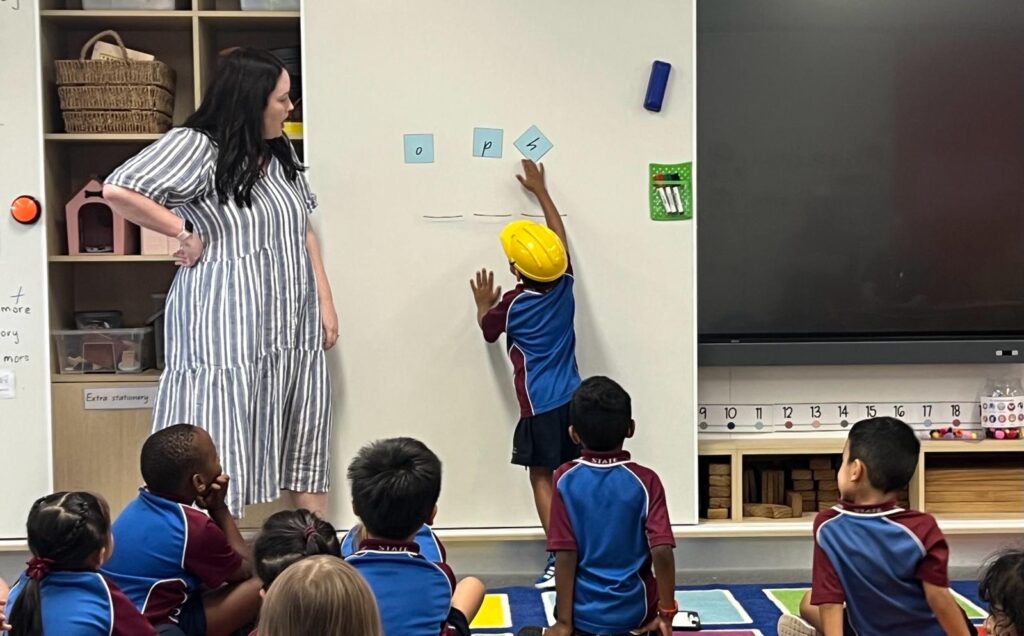
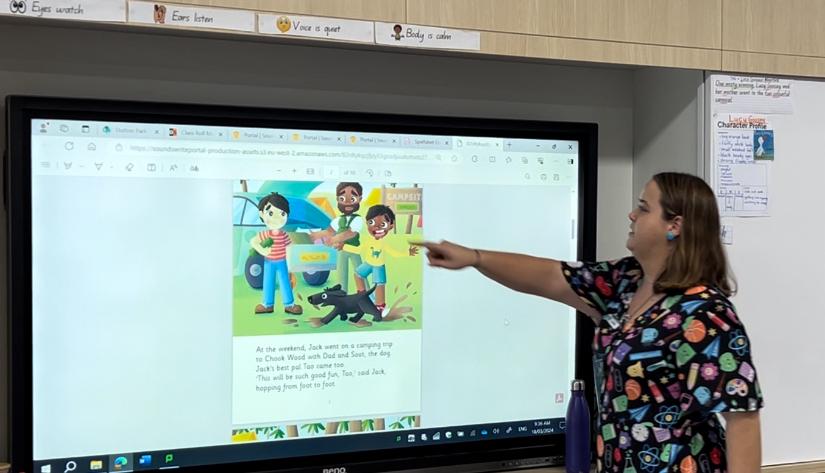
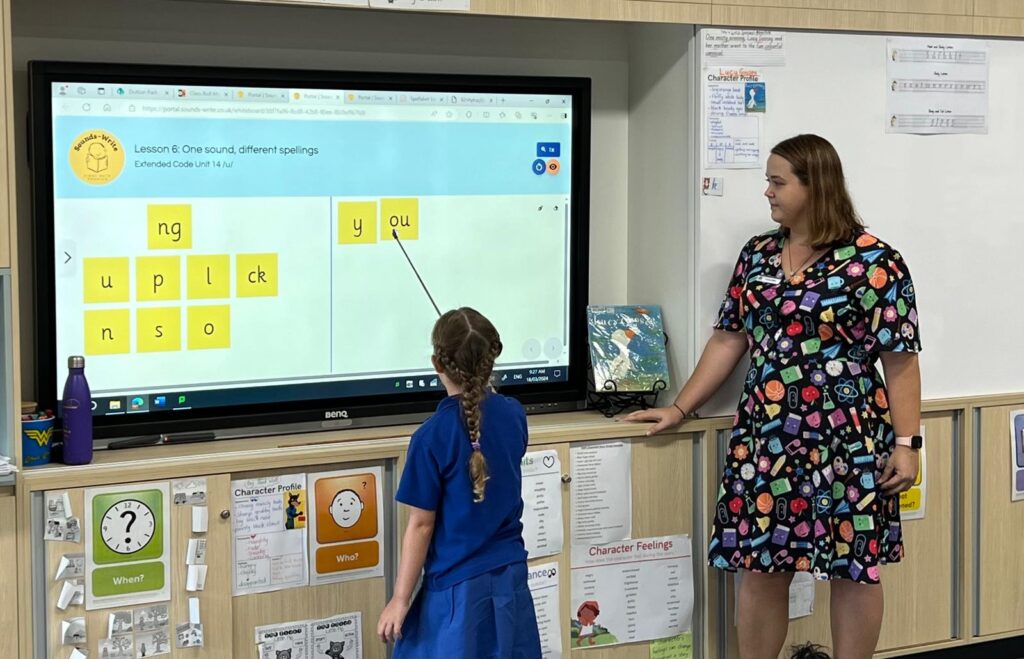
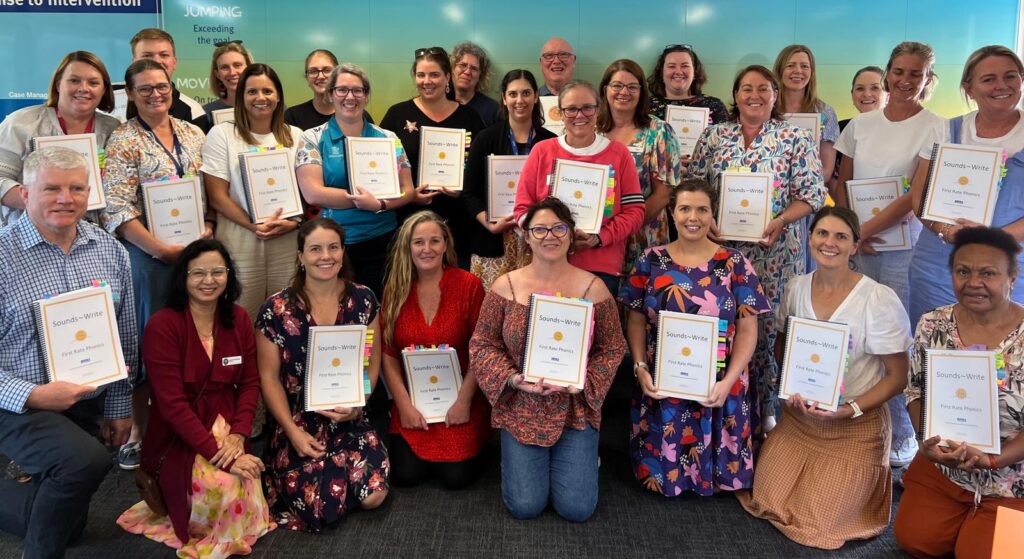
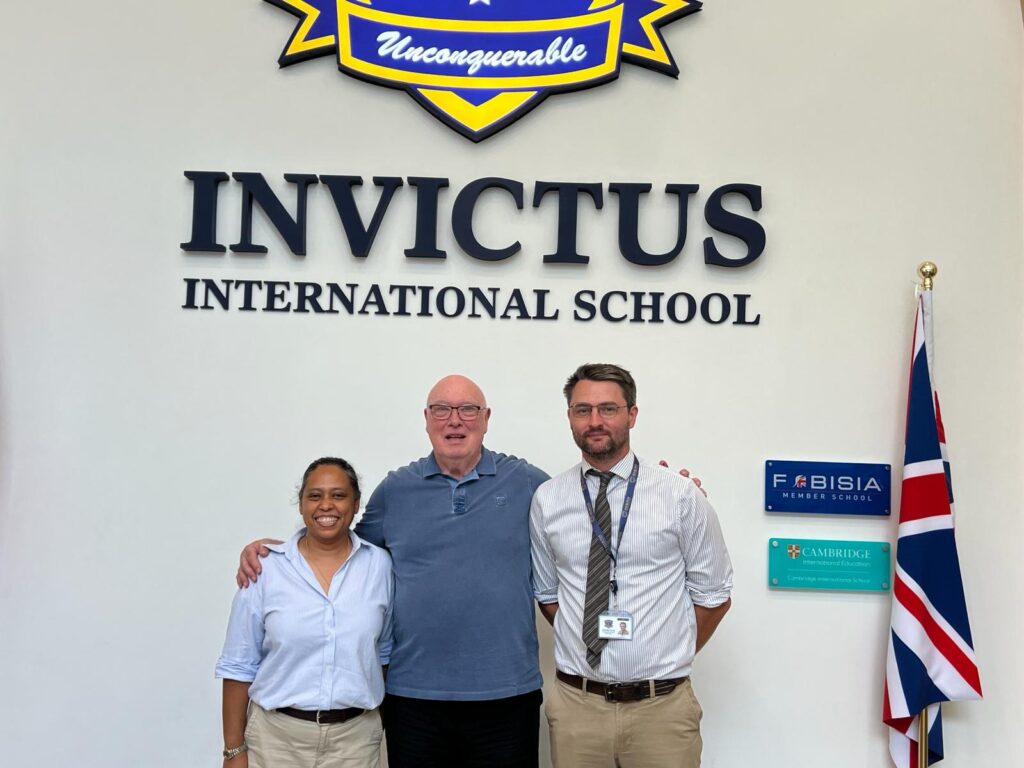
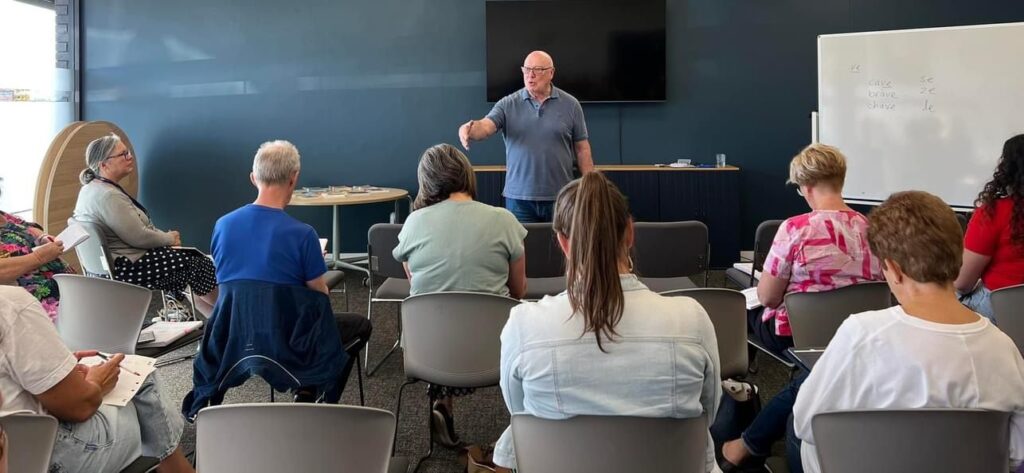
Sounds-Write in special schools and intervention settings
One of the highlights of our trip has been to see how Sounds-Write works in the context of special education. We visited Clifford Park Special School in Toowoomba and the Literacy Clinic at SPELD SA in Adelaide, where dedicated educators work with students with a whole range of moderate to severe learning difficulties. Practitioners showed us how they have adapted their teaching to fit the needs of students with ASD, ADHD, speech and language disorders, developmental delays and impaired vision, as well as those who have experienced trauma. As Gail Williams, Principal at Clifford Park explained, ‘we are implementing Sounds-Write with every student, so that every student has success and opportunities’. In working with students who have very severe needs or who might be non-verbal, it is difficult to know what they are capable of, and Gail highlighted the key concept of ‘presuming competence’, or assuming the student in question has the potential to develop their thinking, learning, and understanding. And the key to the success of all these practitioners is knowing how to adapt the activities to support the needs of their students, while at the same time maintaining fidelity to the Sounds-Write approach. As Jacqui Edwards, a Literacy Clinic Practitioner from SPELD SA, put it: ‘The Sounds-Write programme has specific goals, and we have specific skills, knowledge and conceptual understanding that we have to develop. So if my goal is word building, how am I going to get that student with all these difficulties, with all these special needs, to do word building? You have to think creatively about that, but it still has to be in line with your goal.’
We will be coming back to Sounds-Write in the context of SEN in the next few months, so watch this space!
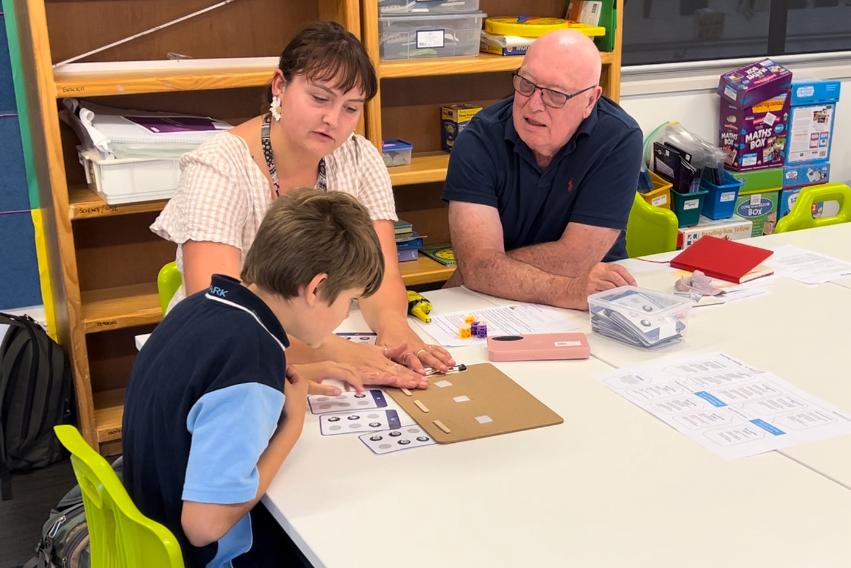
The importance of teacher knowledge
As we all know, teacher knowledge is key to effective teaching and learning and to the success of any programme, and we pride ourselves in providing practitioners with a sound theoretical overview of the Science of Learning: a solid understanding of how the alphabet code is structured and the skills, knowledge and conceptual understanding students need to make sense of it.
We were lucky enough to be able to attend two Sounds-Write trainings while in Australia, one at St Patrick’s Primary School in the beautiful Port Fairy, in western Victoria, and the other at Toowoomba West Special School in QLD. The two trainings, delivered by Biljana Stavreski (Sounds-Write Australia) and Kylie Eckermann (SPELD QLD) respectively, were rigorous and fun, and the trainees asked many useful questions relating to their own settings. Teacher knowledge is at the heart of the Sounds-Write approach, as knowledgeable teachers can make decisions about how to use our approach in their setting. This is crucial to the success of implementing Sounds-Write in schools. We’re looking forward to hearing and seeing how these trained practitioners implement Sounds-Write over the next few months. They know that their trainers will be there to support them on their journey.
If you are interested in our training, whether it’s our flagship practitioner training or any of our specialist courses in the UK, USA, Australia and online, visit our website to find out more!
John also ran Q&A sessions at SPELD QLD and SPELD SA, at Springfield Central in Brisbane and Magill Primary School in Adelaide, and at the Invictus International School in Singapore, where we were hosted once again by Andrew Morse and Claudia Joachim . Questions included:
- the role of memory, pattern recognition and ‘rules’ in learning to read and spell;
- how to make the most out of decodables;
- how to support and stretch students who have more prior knowledge;
- and the role of phonics, comprehension and morphology in learning to read and spell.
Questions from both new and experienced practitioners always help us develop our practice and our approach, and we’ve come away with many new insights into how we can make the programme even better, and we’ll be returning to some of those topics in the blog over the next few months.
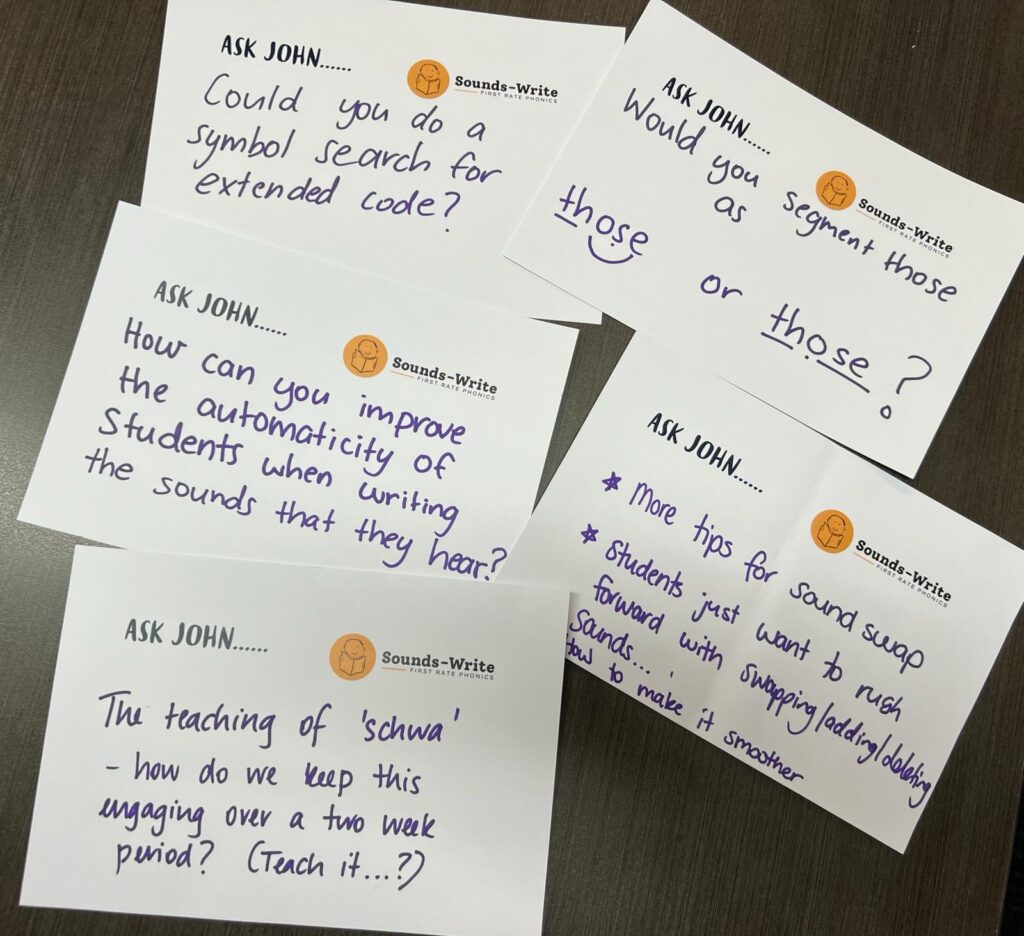
Insights from research
We attended the DSF conference in Perth, which included a rich programme of keynotes and other talks. Our colleague Anna Comas-Quinn, Head of Research and Development at Sounds-Write, delivered a great talk about how to assess the effectiveness of a phonics programme. As she explained, although we are often entreated with ‘looking at the evidence’, the evidence can be complex, inconclusive or contradictory, especially given the many variables that have a bearing on learning. Anna explained how we’re shining a light on the common features that emerge from and connect the experiences of practitioners in multiple individual settings.
We will be sharing more about that in the next few weeks, so watch this space.
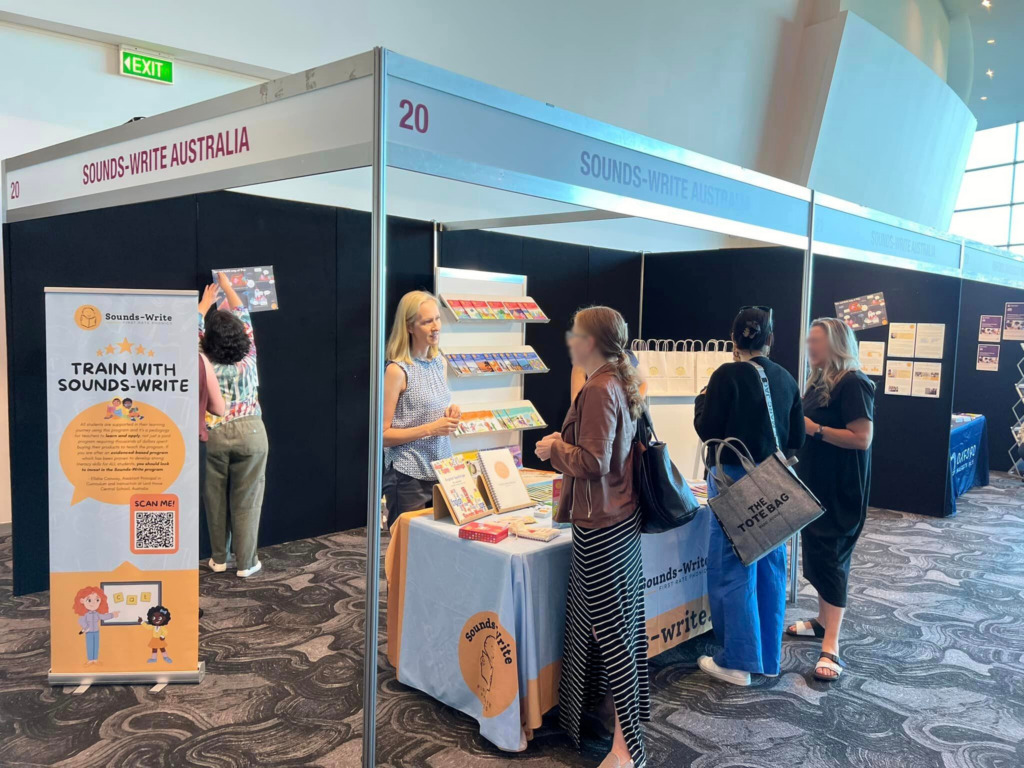
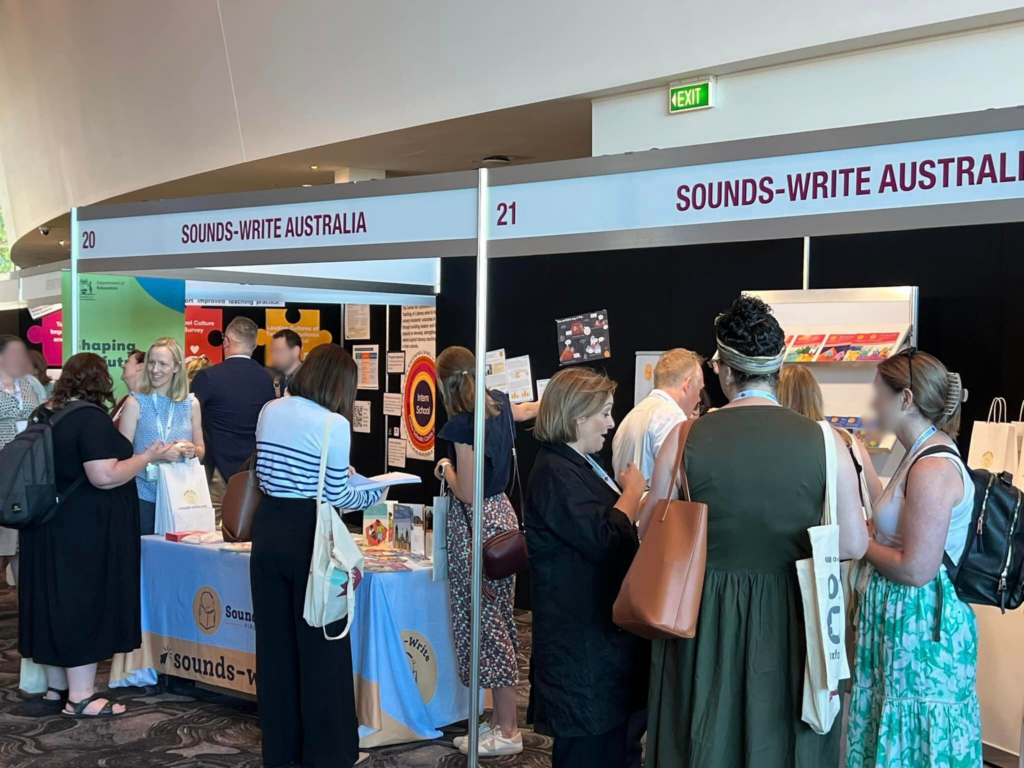
The Sounds-Write family
One of the highlights of the conference and of our trip overall has also been the possibility to catch up with so many familiar faces. Naomi Hinton, Head of Training at Sounds-Write and Anna Comas-Quinn were able to come over to Australia for a couple of weeks too, and we were joined by trainers Biljana Stavreski, Jacinda Vaughan, Alison Perry, Maureen McDaniell and Helen Hampton, who all helped at the Sounds-Write conference booth, where we had the opportunity to catch up with many friends and colleagues and discuss all things Sounds-Write.
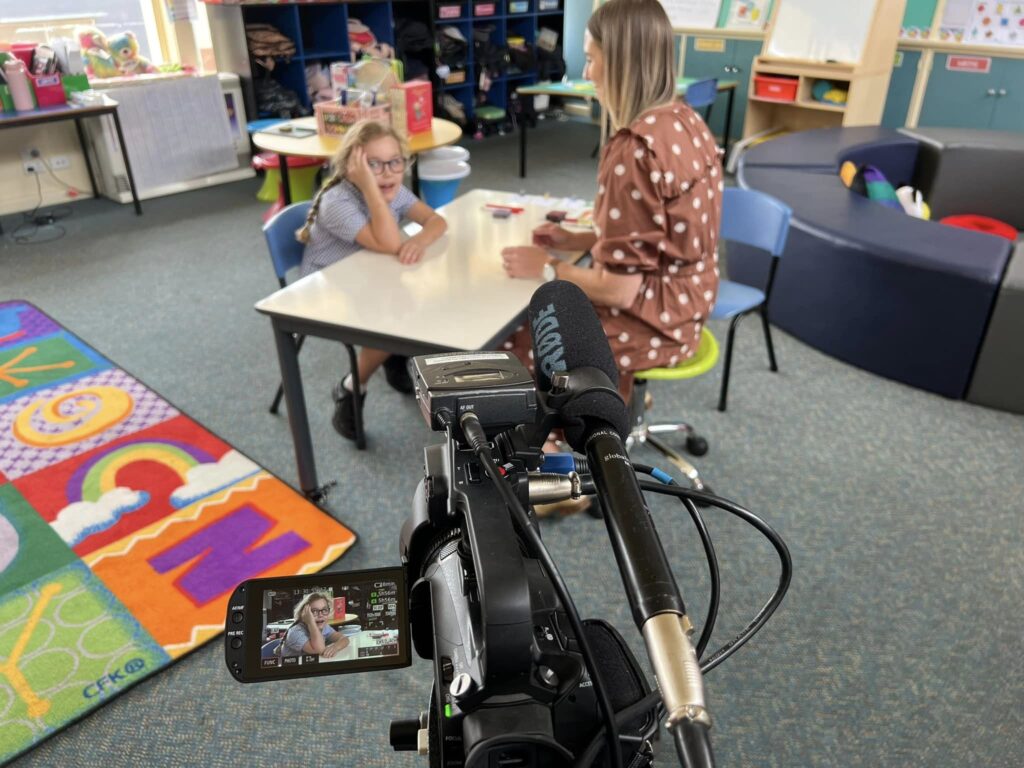
As part of our visit, we also managed to spend some time at Camperdown College, one of the Sounds-Write Training Schools, where we did some filming for some of our courses.

